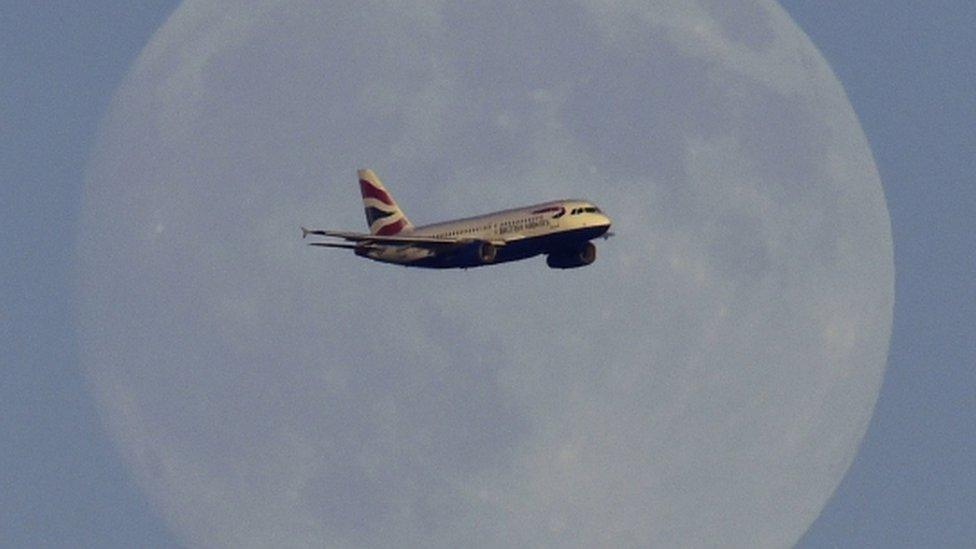Tories back Air Passenger Duty tax cut on long-haul flights
- Published
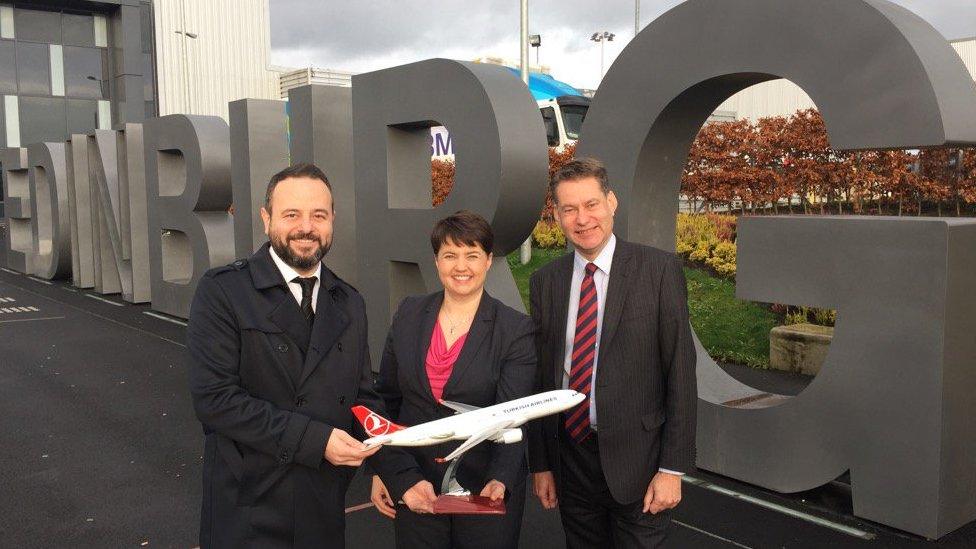
The Tories say their APD plans would deliver better value for money than SNP proposals
The Scottish Conservatives have called on the Scottish government to abolish Air Passenger Duty on long-haul flights.
Holyrood will take control of the air fare tax from April 2018.
The Tories had previously opposed proposals to cut the levy, but argue their new plans could help Scotland "go global" in the wake of Brexit.
The Scottish government wants to cut Air Passenger Duty (APD) by 50%, with a view to eventually scrapping it.
The government said the Tory proposals were "a move in the right direction".
The Tory manifesto, external for the 2016 Holyrood elections argued that "at a time of constrained fiscal conditions, we cannot yet afford further tax cuts", arguing that the proposed 50% cut in APD was not "the right choice" - although leader Ruth Davidson said the party was keen on "reform".
Party finance spokesman Murdo Fraser - who spoke in favour of reducing the tax in 2015 - maintained that the SNP plan "does not deliver the best value for money", urging the government to back Tory proposals instead.
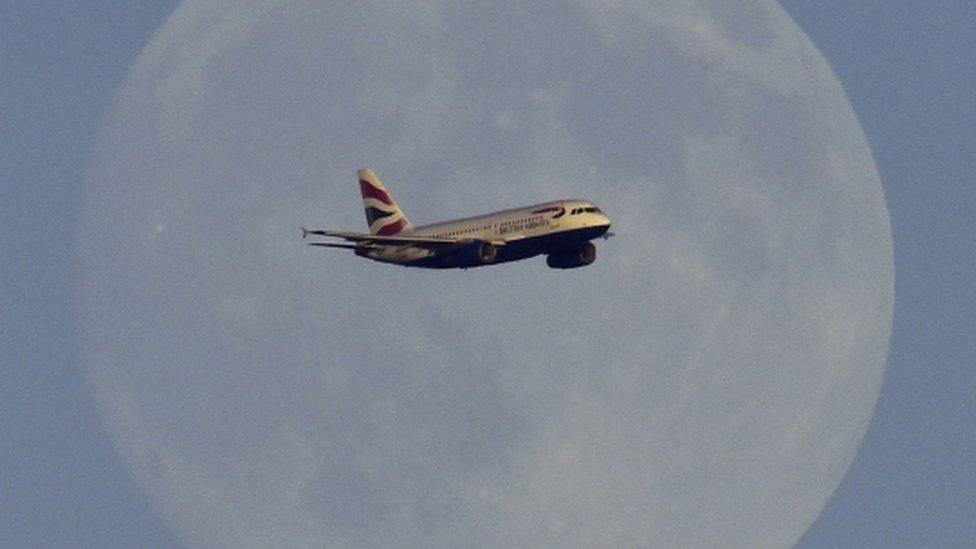
The Scottish Conservatives had previously opposed cuts to APD
They would see the duty abolished for all flights of more than 2,000 miles, alongside an immediate freeze on short-haul flights to the UK and Europe.
The party hope this will prompt airlines to provide new direct flights from Scotland to global destinations such as America and China.
Launching the policy at Edinburgh Airport, Mr Fraser said it was important for Scotland to "go global" in the build-up to the UK leaving the EU.
'Act as barrier'
He said: "Airlines will be incentivised to put on new direct long-haul flights from Scotland. That means instead of having to go via London or Amsterdam, families and businesses would be able to get on a plane in Edinburgh or Glasgow and fly direct to China or the USA, or other global destinations."
"This is a win-win. It makes thing more convenient for travellers, it helps with our carbon footprint by reducing the number of connecting flights, and it will boost tourism and trade."
He added: "The SNP has proposed a blanket 50% cut in APD for all flights leaving Scotland. While this plan has merit, our view is that it does not deliver the best value for money."
Edinburgh Airport supported the proposals, with chief executive Gordon Dewar calling them "a positive step", although he called for a cut to taxes on shorter-haul flights too.
However airline Flybe was disappointed the Tories focused only on long-haul flights, saying they had "ignored the damaging impact the disproportionate level of short-haul APD is having on UK regional travel".
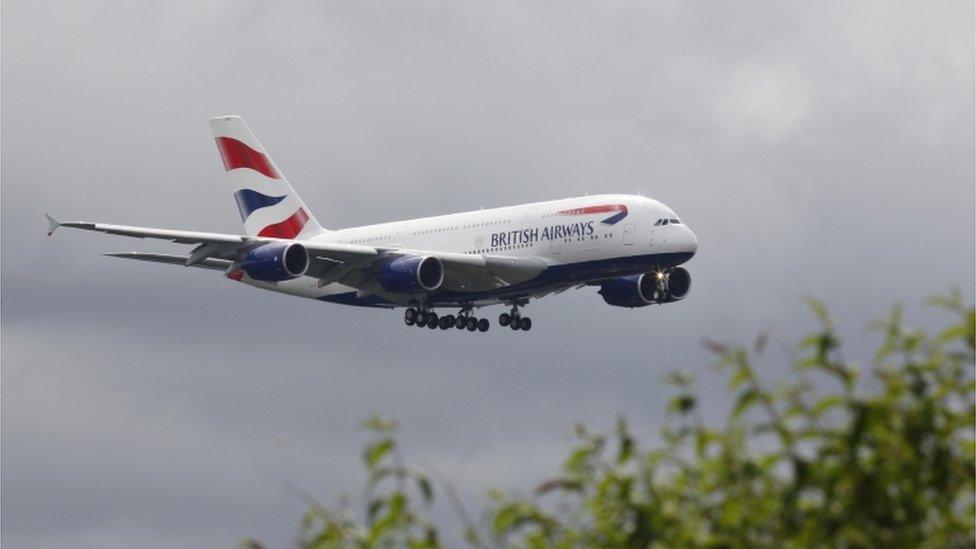
The Scottish government wants to halve Air Passenger Duty before ultimately scrapping it altogether
Other opposition parties were not supportive of the move, dismissing it as a "u-turn".
Labour's transport spokesman Neil Bibby said the Tories looked "set to do a backroom deal with the SNP to give a tax cut that will disproportionately benefit the people at the top", adding that "cutting APRD won't make Scotland any fairer or greener".
John Finnie of the Scottish Greens said cutting APD was not the "genuine investment" in transport Scotland needed, adding: "The Tories continue to have their heads in the clouds, dreaming up new ways to give tax cuts to the richest and to big businesses."
Scottish Liberal Democrat leader Willie Rennie meanwhile said the Tory "u-turn" showed the Tories were drifting to the right and had "broken their promise to oppose the SNP strongly".
A Scottish government spokeswoman said: "This is a move in the right direction and we look forward to persuading Parliament as a whole on this. UK APD has been the most expensive tax of its kind in Europe and continues to act as a barrier to Scotland's ability to secure new direct international services and maintain existing ones.
"Our plan to cut APD by 50% by the end of the parliament, and then abolish it when public finances permit, is a fundamental component to improving Scotland's international connectivity - which is particularly important in light of the economic uncertainty caused by the outcome of the EU referendum."
- Published19 August 2016
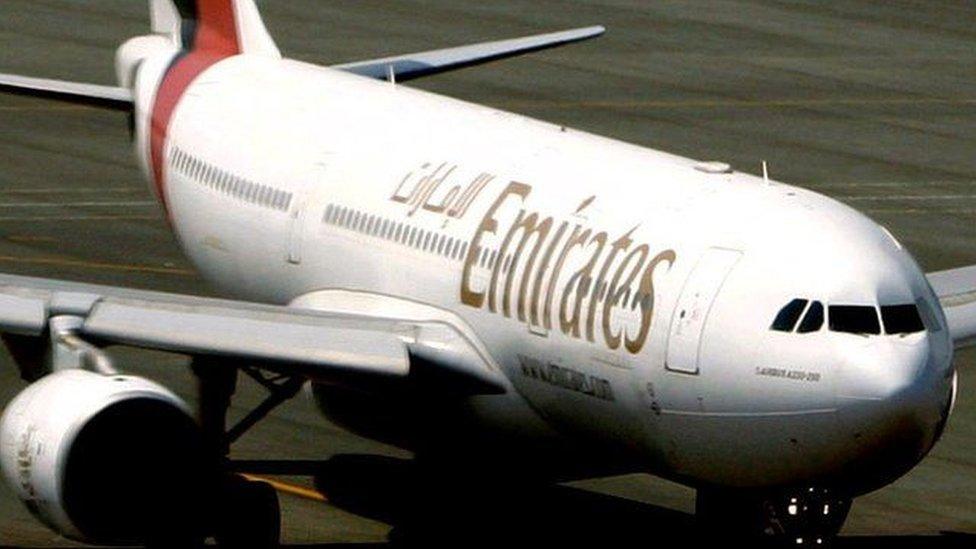
- Published29 July 2016
